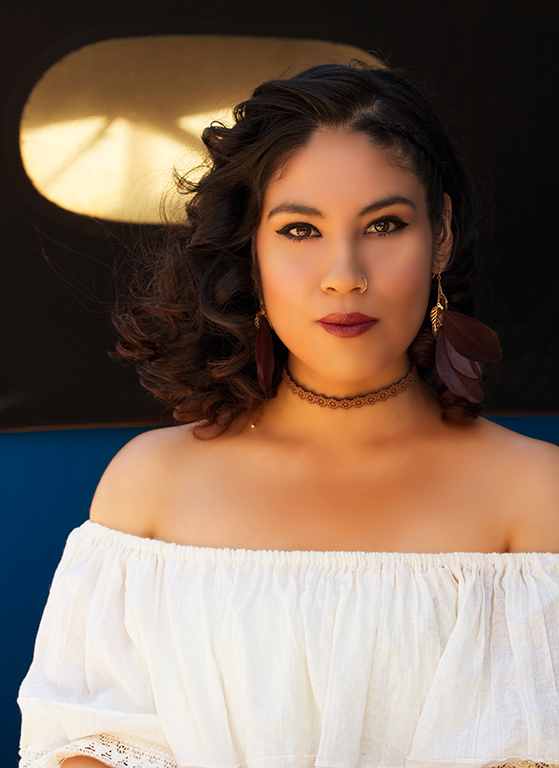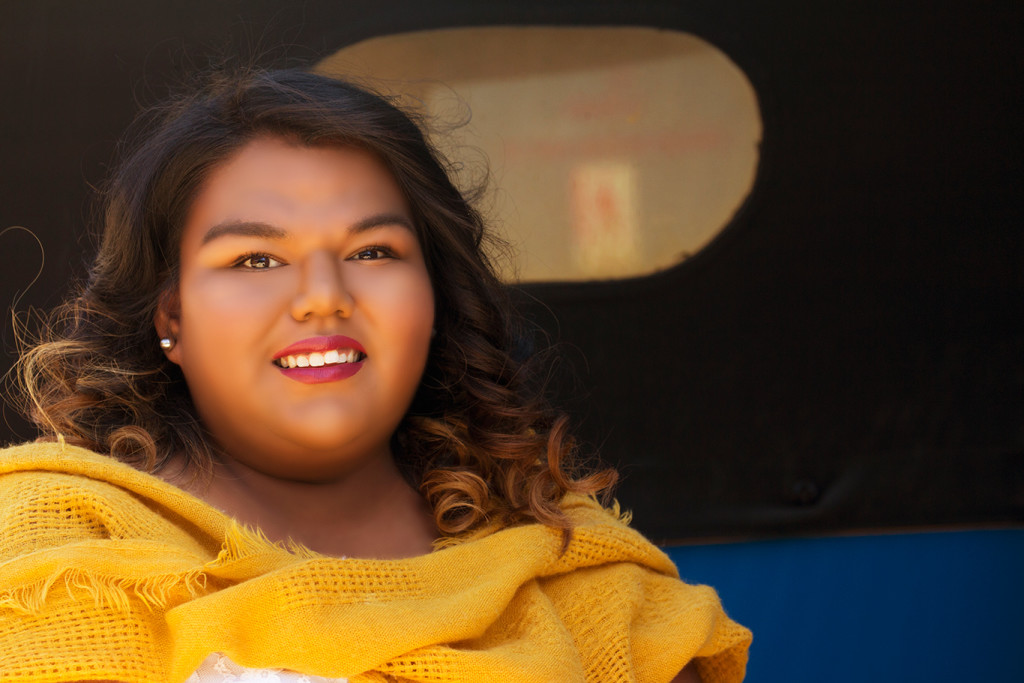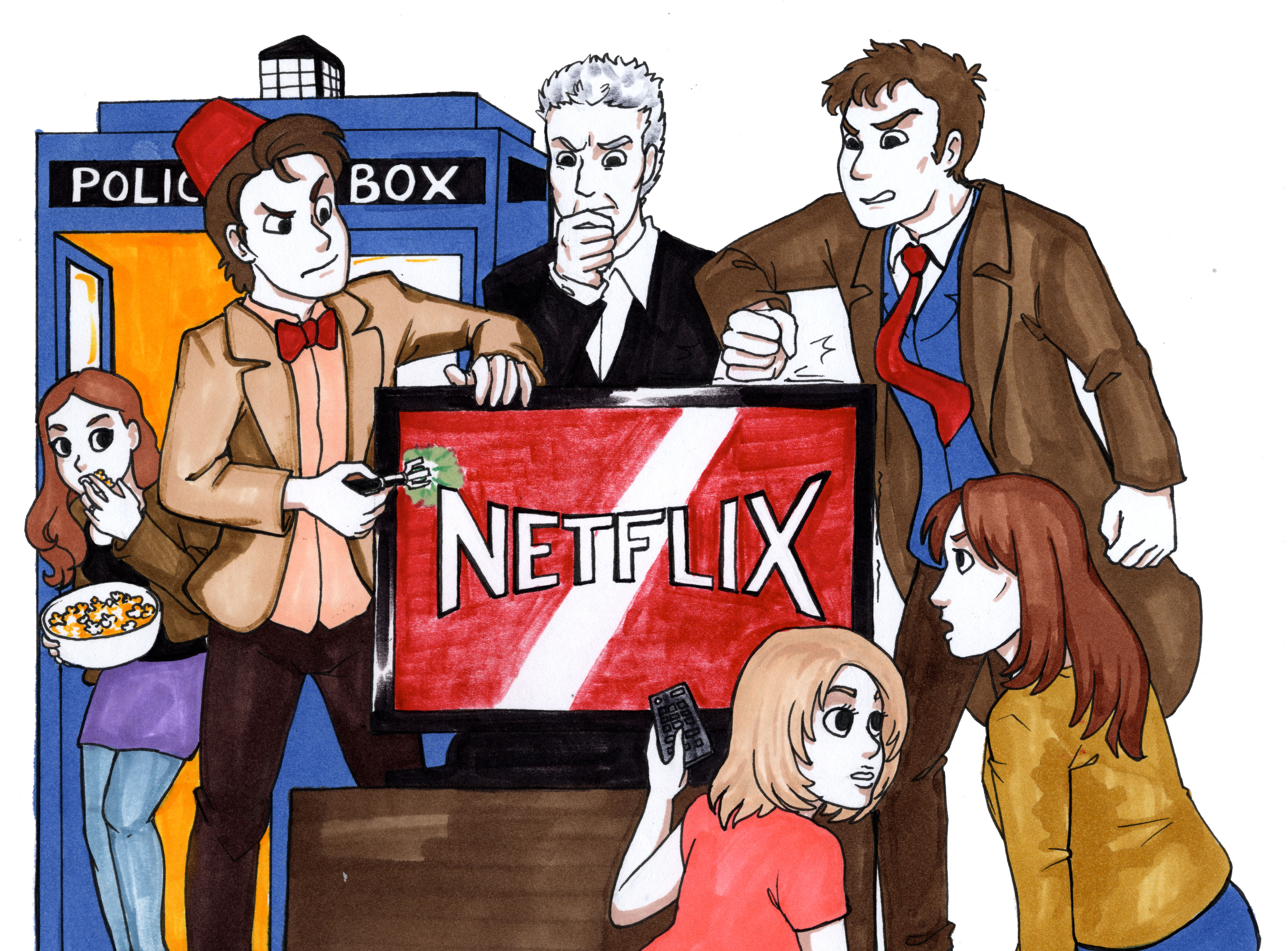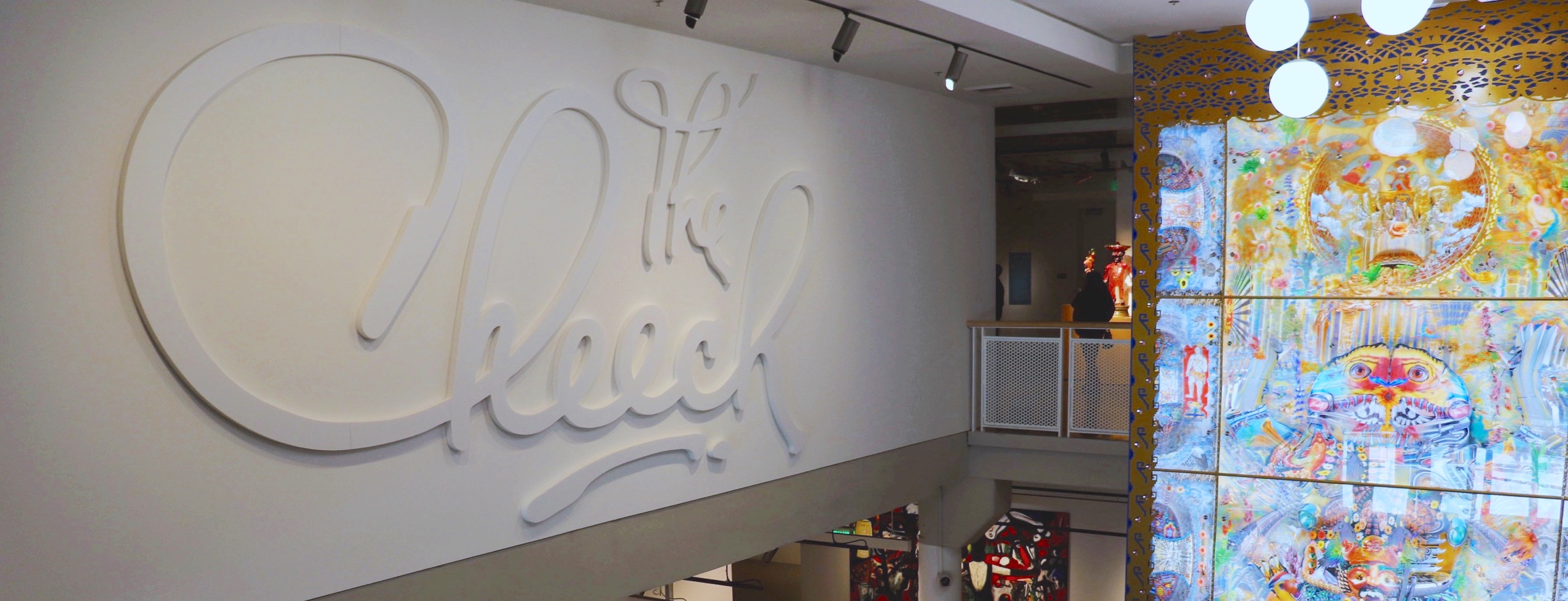Q&A with Student Trustee Jennifer Chavez-Ramos and ASCC President Vanessa Salinas on their influences and the challenges of being Hispanic women in leadership

Student Trustee Jennifer Chavez Ramos (Photo by: Vidal Espina/Logos)
Growing up in a very traditional Hispanic household, Jennifer Chavez-Ramos, had her whole life mapped out for her by the family. As a child,she stayed at home with her mother cooking and cleaning while her father and brothers went out to experience life. It was expected by the time she was 21 she would be married with kids. So, staying home doing household chores was a training ground for what she was expected to do for the rest of her life, but she had other plans for her future.
Despite being undocumented residents, Chavez’s parents worked really hard to give her and her four brothers, sister and live-in cousin the opportunity to live the American dream. Her father had a managerial position at a family friend’s company but ended up losing his job due to the recession. Unable to attain another job and not wanting his family to be on welfare, Chavez’s father went back to Mexico to try to support the family abroad. Chavez was 16 at the time. Meanwhile her mother took a job cleaning houses until her humble earnings couldn’t support all the children and so her mother had to join her husband.
At 18, Chavez was left in the United States to take care of her brothers and sister and was on her way in fulfilling the traditional role her family tried to instill in her.
However, since an early age, Chavez never wanted to step into the traditional role. It was an innate drive in her to break free from those traditions and show the females in her family that there were other options and other roles for them.
Out of high school, Chavez enrolled at Citrus College. A few months later, and financially strapped, she dropped out, defeated in the belief that she would never be able to afford the education she so desired.
For the next three years, Chavez worked various jobs to help support her family. In those years, though, Chavez learned of FAFSA and various other financial aid offers that many of her peers were already taking advantage of. So she re-enrolled at Citrus with a new sense of motivation to complete her education.
The path back to education was a rough one for Chavez. This second time around, Chavez was working two jobs, taking care of the family and taking classes. With so much on her plate, there was never enough hours in the day for her to successfully pass a class and so, Chavez was put on academic probation multiple times.
But not one to feel defeated again, Chavez told herself she needed to complete her education, for herself, for a better life and for her family.
What was your motivation from the rough beginnings at Citrus to now applying to universities?
My motivation is my passion for helping people. And that I want to pursue a better way of living and to make my parents proud. But my main drive is my need to help people. I want to help students who don’t have someone there to help them, like first generation students and undocumented students. I feel like there’s specific students who need extra help, who need someone to go the extra mile. I want to be example, of someone who people can look up to and say “If she did it, why can’t I?” I can’t imagine living my life NOT doing what I wanted. I love Citrus College and I love everything that I do with the board and my job.
You currently work two jobs in addition to being a full-time student and a student trustee. How do you find time for everything?
I don’t sleep. [laughs] I sleep for two hours a night. I drink a lot of coffee. It all kinda falls together. I work at a wedding hall where my boss and coworkers are just genuinely amazing, humble people who just want to help. The environment is positive, friendly and fun, I love working there. I work during the weekends, Saturday and Sunday, with eight hour shifts usually. I also work [at Citrus] in Dr. McDonald’s office and she is just the best boss ever.
How much longer do you have at Citrus?
This will technically be my last set of classes but to finish up the role of trustee I have to be here during the winter and the spring. I’m gonna take fun classes, classes I didn’t get to take. I want to learn more! [laughs]
We’re doing this piece on Hispanic heritage and we wanted to know what does Hispanic heritage means to you?
I think it means yes, the cultures and traditions make us up, but in terms of who we are internally, it’s not who we have to be. We can break all the boundaries and all these walls that we’re set to as Hispanics because, sometimes, we settle into our traditions. I feel like it’s more of an empowerment movement now, like astronaut Jose Hernandez who came here and spoke. He talked about the way he grew up the traditional way, but he was able to take that and use it as a drive to become someone better, to do a little more than what he was meant to do.
Is there an influential Hispanic, or Latina, that you draw inspiration from?
My mom. She’s a very strong woman who grew up super poor and couldn’t afford meat for dinner. They barely had shoes or clothes and my mom was able to come here and be on her own at 17, started working hard and met my dad. She took so much pride in her job and she was able to support herself and her family and she is good at it!
She chose a different life path and you find that inspirational?
I find it inspirational because it’s not what someone does, it’s the passion they do it with. And it made my mom happy. She loved organizing and cleaning, she had a passion for it. She got up every day and loved going to work, something I could never understand when I was younger. She took me with her one time and I saw how she cleaned five to six houses every day, still having the energy to come home and cook for us, clean the house, tend to my dad and I don’t know where she got all that energy.
It obviously passed on to you!
I guess! But that’s manual labor too. She would work eight hours, come home and cook for all eight of us, clean after, get all my brothers things ready for school in the morning the next day. You know, it’s ridiculous, I don’t understand it.
What inspired you to run for student trustee? Where you a part of student government before that?
I was not. I started talking to the ASCC members and realized I could do this. Originally, I was just supposed to run for a senator position, I thought that’s something easy I could do. But then, I was told by a friend to run for trustee and I thought “I could never do that, I don’t think so.” Then I thought and told myself “Wait, why don’t I think I can do this?” I decided not to limit myself and went for it.
How have you been enjoying your time now as student trustee?
It has been amazing! Especially working with all the board members. They’re so supportive and being involved in the Strategic Plan, is how I developed my mentorship program. I have a year to increase enrollment from continuation schools and provide data to prove that this works so it can potentially be expanded to other continuation schools. I wouldn’t have been able to do that without being the student trustee. That and the opportunity to provide information to undocumented students about studying abroad, so they know they can. I know so much about all the ways I can help students out because of my involvement in the board.

ASCC President Vanessa Salinas (Photo by: Vidal Espina)
Born in Glendora and raised in Azusa by two hard working parents, Vanessa Salinas always had a penchant for helping others. Salinas spent all four years in high school involved with student government ensuring that the voice of the students she represented were heard.
During her last years in high school, Salinas thought she would combine her passion to help others with her love of children to become a preschool teacher.
Once she registered at Citrus, she thought she might help children even more by being a pediatric nurse. So Salinas enrolled in 2013 majoring in biology and forwent joining student government in college knowing that her classes would require intense studying.
Two years later, Salinas couldn’t stay away any longer and chose to join student government again. It wasn’t until a chance summer class that Salinas decided to add a second major to her college career in hopes that she can expand her reach in helping others.
What’s your major?
Biology and sociology. I started out as a bio major because I wanted to do nursing, then I took Contemporary Social Problems over the summer and said “Wow, the world is super messed up.” And that led me to taking more sociology and psychology classes. I already did all my bio and figured might as well use both when I apply next month for schools!
What inspired you to run for ASCC president?
All through high school, I was involved in student government. So, the first semester I was here, I signed up and never went to go get interviewed, because I wanted to adapt to college life and figured out what I was doing. After a couple of semesters, I figured I just needed to do it and be involved.
How much longer do you have at Citrus?
My last semester is in spring, so I’m applying to CSULB, CSUSB, UCLA. I want to have my options open, rather than set my heart on one school, not get in and have nothing to fall back on.
How did you find the transition from being on the board from this year to last year?
It was different, because with Juniper, she always had something to do for us and there was only four of us doing all the work and when I became president, I knew everyone was going to be doing work and knew what their purpose was on the board.
What is your job, for those who don’t know what being the ASCC president entails?
It’s a lot of planning, a lot of going to meetings and you have to have the guts to be able to speak up, because there are a lot of issues the faculty and the higher ups will talk about but they make assumptions about the students and assume they’re uninformed. So, you have to be able to stand up for the students, give your perspective and let them know where we’re coming from, the issues and challenges of being a full time student with a full time job, kids, coming back from a long break, all of that.
How much time do you spend here on campus?
My whole life. [laughs] On Mondays, I get here at 10 AM and don’t leave until seven and I’m always running from meeting to meeting or class to class, so I’m here a lot. Weekly, I’m here about 30 hours.
With your role as president, is this something you want to take into your career?
Politics are not my favorite. I just love being involved with students and planning events for them. I’d love to be a social worker.
What does Hispanic heritage mean to you?
To be proud of where you come from, because a lot of people forget. They try to readjust to what society thinks is okay and they don’t want to push boundaries or offended anyone and I’m like “No, this is who you are, show them your culture.”
Where are your parents from? Did they grow up here or are they from somewhere else?
My parents came here Morelia Michoacan about 30 years ago. My brother just calls it Michigan. [laughs]
Did your Mexican heritage have a strong influence on you growing up?
My grandpa did a lot of the planning for the city he lived in, Cortijo Nuevo, and he was also involved in the community. I feel a little bit rubbed off on me!
Did you have any influential Hispanic or Latina role models you looked up to?
My grandma, I think she had like five or seven kids. My grandpa died when I was five, so she took over and took care of everything on her own and I saw her being strong and thought “If she can take care of the ranch, that makes her strong.” So, it was really empowering to see a woman in that role.



